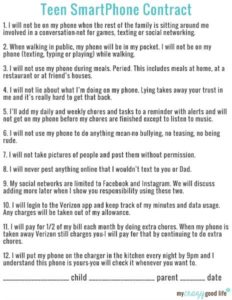Parenting Gen Z? Well, then there’s a high probability that you must have encountered this ‘magical’ moment (Or if you are like me, mommying ‘Gen Alpha’, then the time is not too far for us too!). May be not a magical moment for you as a parent but definitely something your child had been anticipating. The day your child is getting that very first cell phone or tablet. And boy are they beyond excited!
But hold on!
Exposure of our kids to internet is now everywhere- from laptops, to television screens, to cell phones and I-pods. All of a sudden, the whole world is in your kids’ back pocket, plus all the information in the world — good and bad. Though undoubtedly there are some clear benefits of this medium, the Internet also poses unique parenting challenges.
How does a parent know if their child is engaging in inappropriate Internet activities? And how would you know if your child is cyberbullied if he doesn’t tell you? How does one monitor child’s online activities without making the child feel that you are spying on them?
We’ve got some tips for you when it comes to how to start out with cell phone use and what you need to know about monitoring it.
5 Tips on Cell Phone Monitoring for Parents
1. Start Early and Keep Talking About Internet Safety

Your 6-year old may have heard of cyberbullying or online predators, but that doesn’t mean they understand the extent of the danger. The crux of safety is communication. As parents, strengthen your relationship by talking to your child and expressing your willingness to listen to them. If they have concerns, online on offline, they should trust your inclination to discuss. Go Mommy Tip: Use the 5-to-1 listening to talk ratio: Talk one minute and listen for five.
You may also like “5 Books to Teach Good touch Bad Touch to Kids”
2. Rules for Cell Phone Use
The internet opens up an entirely new world for your child. From Youtube to FaceTime to Google, now they have the opportunity to interact with their friends, use all social media and browse through at own will. As you hand over the device, make it clear that it comes with a full set of rules.
For example-
- Don’t give out your private information or no talking to friends after a specific time
- Set up unplugged family zones (kitchen and dining room)
- Restrict use of phones or tablets on the dining table
- No internet in the bedroom
- Allocate a corner or designate a basket and have your kids drop cell phones, I-pads or laptops in the basket each night and out of the bedroom.
Review those rules frequently and consider having your kids sign a pledge to adhere to them. How about a ‘Smartphone Contract’? It can help set & meet expectations for the family.

Include guidelines like screen-free time, restricted Apps etc. How the parent will have access to all passwords related to the phone and apps on the phone, the hours the phone can be on and off, how it will be charged overnight in a centralized charging area that is not in the child’s bedroom, and what happens if the family’s phone rules are not followed.
You may also like “Easyfone Star- A one of its kinds safety gadget for Children ”
3. Keep Internet Access in Places You Can Monitor
You can’t monitor your child’s online activities in places you can’t be or see, so don’t allow the computer in places you can’t supervise. Keep your computer in common places you can supervise such as the family room, or living room and remove Internet access from the bedroom- especially after lights out.. You can restrict Web access using several Apps during key times or ages you can’t supervise.
4. Be upfront and Tell Kids You Will Be Monitoring Online Behavior

When kids know their parents are monitoring their off or online actions they are less likely to engage in risky behaviour. Quite natural, isn’t it?
Parenting kid’s online activities is not espionage if you let them know upfront that you will monitor their cyber-behavior just as you do offline. Just don’t tell when you will monitor, and how often. Watch your child’s reaction to when you say: “It’s time to check.” You can slow down the stealth-check mode based on past responsibility or as your child matures. Middle school years are when bullying peaks – so do monitor more frequently during those years.
Your child might feel that you are invading their privacy. Thus it’s good to frame monitoring as a tool of protection. Just explain that you are responsible for their safety and well-being and what they post online represents your family.
5. Be Smarter & Stay Updated- Learn Kids’ Internet Slang and Trends
With technology advancing every moment, don’t be fooled by these little-geniuses. If you think that you can outsmart them technologically because you are older, you have some catching up to do. Kids have their own unique lingo and abbreviations to warn friends that parents are in the room. Get savvy about your child’s online world so you can monitor. Make use of Parental control Apps to track your child’s activity on their phones. Stay on top of the latest Internet trends & learn kid electronic slang.
For example-
- P911: Mom or Dad in room
- PA: Parent alert
- POS: Parents over shoulder
- PIR: Parent in room
- PAW: Parents are watching
Didn’t see that coming, did you? Well, reality check!
Remember, monitoring is all about teaching our kids how to interact with technology. Emphasize on use of cell phones and other devices as a teaching tool. Access to smartphones or tablets must be framed as a “privilege” for kids.
At some point your child may feel angry and push for more power. But then It’s important to listen to their concern and help them understand why monitoring is important. More so, as a parent, it is your right to check-in on what is happening with your child. Setting ground rules up front will help your child feel less like you are spying on them and more like you are trusting them to be responsible, but at the end of the day, you are responsible for helping to keep your child safe.
Having said that, don’t forget parents need to be role models first. Most kids believe their parents are addicted to phones. It’s our responsibility as parents to live up to the guidelines we set.
Go Mommy!
